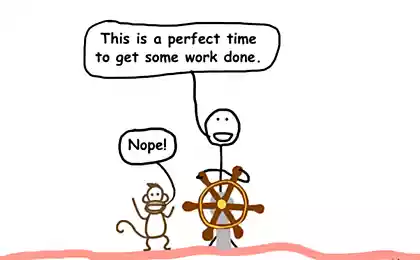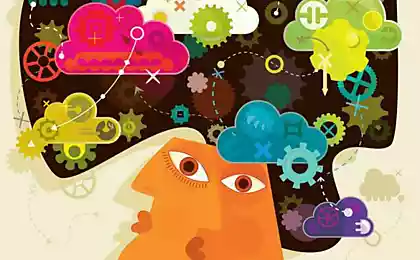175
What to do if you don’t have twenty-four hours in a day: Rethinking life and planning effectively

What do you do if you miss twenty-four hours in a day?
Lack of time is a common problem of modern man, the feeling of a constant shortage of minutes and hours has become almost the norm in conditions of a dynamic rhythm of life. However, despite the seeming inevitability, we can change our approach to business management, re-prioritize and find a balance between work, leisure and personal development. In this article, we will look at a popular scientific view of the problem of time shortage, based on research, practical tips and modern time management techniques that allow you to rethink your life and use every moment with maximum efficiency.
Introduction: Why are we running out of time?
With rapid technological progress, a constant flow of information, and increasing demands on both work and personal life, a person is often faced with the feeling that 24 hours in a day are not enough. Modern research published in the Harvard Business Review and Forbes shows that the problem of lack of time is rooted not only in increasing the number of tasks, but also in insufficiently efficient allocation of resources. Psychologists and productivity experts come to the conclusion that the main challenge is not so much a lack of time as the ability to properly prioritize and organize their affairs.
The problem of lack of time: myth or reality?
Many experts believe that the lack of time in itself is only an illusion created by poor management of personal resources. At the heart of the problem lies our attitude to time, our planning habits, and our ability to focus on what matters. Excessive immersion in small details and distractions create the illusion of overload. Renowned psychologist Daniel Goleman notes that the ability to consciously allocate time is directly related to emotional intelligence and the ability to manage their own resources.
Main Causes of Time Shortage
- Incorrect planning: The lack of a clear structure of the day leads to a waste of time.
- Numerous distractions: Social media, constant notifications and unnecessary meetings.
- Procrastination: postpone important things for later, which leads to an increase in stress.
- Unrealistic expectations: Exaggerated goals without considering real opportunities.

Strategies for changing the approach to life
To overcome the feeling of lack of time, it is necessary to revise the usual patterns of behavior and master the methods of rational use of each hour. The key idea is to abandon excessive multitasking and move to purposeful, conscious task execution. Below are the key strategies that can change your approach to time management:
1. Reassessment of priorities
First of all, it is important to clearly define what is most important in your life. Divide your tasks into categories: urgent and important, important but not urgent, urgent but not important, and unimportant. This method, known as the Eisenhower Matrix, allows you to rationally allocate resources and avoid unnecessary waste of time.
2. Effective day planning
Divide the day into temporary blocks, in each of which perform a specific task. Using Pomodoro or Time Blocking techniques allows you to maintain a high level of concentration and minimize distractions. Scientific studies show that such methods contribute to improved cognitive function and increased productivity.
3. Minimalism in business
Leave in your schedule only those tasks that really contribute to your goals. Getting rid of unnecessary obligations helps reduce stress and focus on the main thing. The application of the principles of minimalism in work and personal life contributes to clarity of thinking and increase inner harmony.
4. Conscious use of technology
Modern gadgets can both help and interfere with time management. It is important to learn how to use them wisely: planners, reminders and special applications can become reliable assistants if you do not succumb to the temptation of constant distraction to social networks and information flows.
Rethinking life: psychology and habits
One of the key aspects of time management is changing attitudes towards life. Psychological attitudes play a crucial role in how we perceive and allocate our resources. Realizing that time is not an enemy, but a resource, allows you to get rid of the feeling of constant race and fatigue.
Practicing meditation, keeping a diary, or regular introspection can help identify which habits are most destructive and which changes will improve your quality of life. According to research conducted by the American Psychological Association, mindfulness contributes to improving cognitive function and reducing stress levels.
Psychological aspect of planning
The feeling of lack of time is often associated with an internal conflict between the desire to do everything and limited resources. Changing the paradigm of thinking based on the principles of awareness and acceptance allows you to more rationally perceive everyday tasks. Developing the habit of regularly analyzing your successes and mistakes helps to correct further actions and avoid repeating ineffective behaviors.
Practical recommendations and conclusions
To sum up, the problem of lack of time is not a sentence, but a challenge that can be overcome. Key recommendations for improving time management include:
- Clear definition of priorities and avoid unnecessary cases;
- Planning the day using proven methods;
- Conscious attitude to technology and information;
- Regular self-analysis and habit correction.
If you feel that 24 hours isn’t enough, try rethinking your goals and resource allocations. Applying these recommendations, you can create a harmonious schedule in which every minute will work for your future. Ultimately, it’s not about how many hours you have, but how you use them.

Conclusion
The problem of lack of time has long ceased to be solely a matter of objective reality and has become a reflection of our inner world and habits. Rethinking priorities, planning effectively, and changing attitudes to daily tasks can significantly improve quality of life. It is important to remember that each of us can change our reality if we learn how to use the available resources efficiently. The desire for a balance between work, rest and self-development is the basis not only of professional success, but also of personal well-being.
We hope that the presented strategies and recommendations will help you to look at the problem of lack of time from a new angle and open the way to a more harmonious and productive life. May every moment be a valuable contribution to your future, and every new day an opportunity for growth and development.
Critical thinking: how not to become a hostage of your own mind
Is it to be or not to be? How to Answer the Hamlet Question























